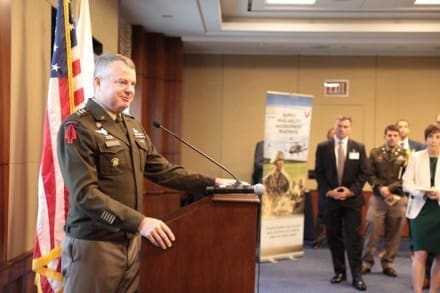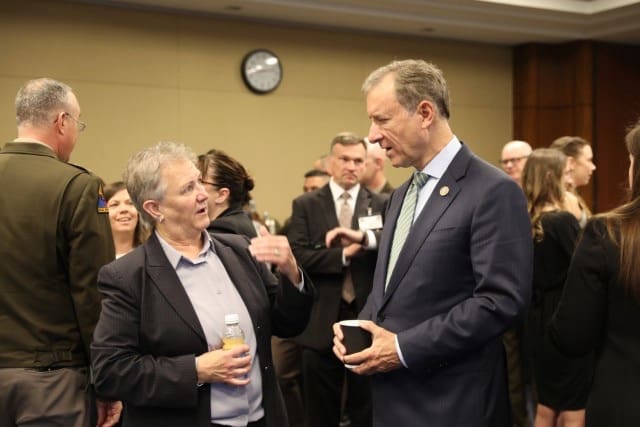
WASHINGTON — The Army had an opportunity to share its story of Organic Industrial Base modernization with members of Congress at its annual Army House Depot Caucus Reception on Capitol Hill, July 23, 2024.
“Thank you for your early investment and continued support of the Army’s OIB,” Lt. Gen. Chris Mohan, Army Materiel Command deputy commanding general and acting commander, told members and staff in attendance. “With Congress’ support, we have embarked on a 15 year multi-billion-dollar investment to strengthen the nation’s industrial base, generating readiness and operational capabilities.”
At the start of fiscal year 2024, the OIB officially entered the 15-year Modernization Implementation Plan, focused on five lines of effort- facilities and infrastructure; tolling and processes; workforce; network and cyber; and energy and environmental.

“Right now, at our depots, arsenals and ammo plants, you will see a lot of emphasis on infrastructure, roads, electrics and water projects,” said Mohan. “Once we bring those up to standard, we will begin moving inward, including not only implementing cutting-edge technology like advanced manufacturing but also upgrading our communications infrastructure and cyber resiliency.”
Some modernization projects started early due to additional funding the Army received connected to ammunition production, including efforts to accelerate 155mm production.
Mohan stressed to the attendees that the OIB is more than the 23 sites around the county; it has expeditionary capabilities, with at any time between 600-1,000 artisans in more than 30 countries around the world.
“They are at the tip of the spear, in places like Poland providing the essential support needed on the front lines,” said Mohan. “Your OIB workforce is making a difference, not only in your districts but around the world.”
Recognizing the powerful role that OIB artisans play in generating readiness, a key piece to the modernization plan is an OIB Human Capital Modernization Implementation Plan, which will ensure the Army is hiring, training and developing the workforce to support the 21st century OIB.
By Megan Gully

